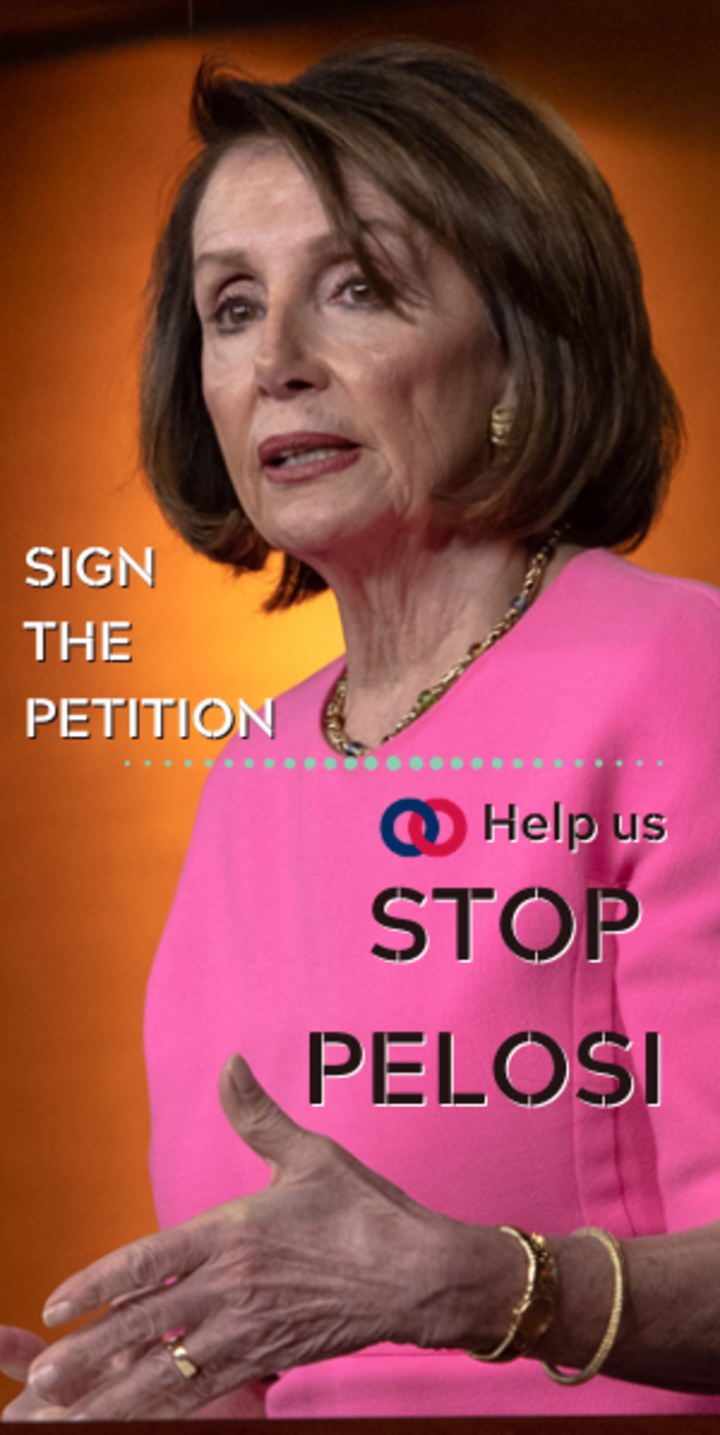November 30, 2012 – 1:30 pm
The Associated Press:
 "... U.S. District Chief Judge Robert Jones ruled that Nevada has what he calls "a legitimate state interest" in maintaining the traditional institution of marriage between one man and one woman.
"... U.S. District Chief Judge Robert Jones ruled that Nevada has what he calls "a legitimate state interest" in maintaining the traditional institution of marriage between one man and one woman.
He says the state has the right to prohibit recognition of marriages from other states."
Maggie Gallagher comments at NRO's The Corner:
The District court in Nevada just upheld that state’s marriage amendment, using the wins for gay marriage this November at the ballot box as evidence that gay people are not a protected class (because they are not politically powerless), and upholding Baker v. Nelson as controlling on the equal-protection claim.
The case now goes to the Ninth Circuit.
November 29, 2012 – 3:00 pm
Our President Brian Brown was interviewed by Reuters on the future of the marriage battle:
"...in many states the gay marriage fight remains an uphill battle. The National Organization for Marriage says its own polling has found well over half of American voters believe marriage should be defined as a union of one man and one woman.
But Brown acknowledges that defenders of so-called traditional marriage now find themselves on the defensive.
"All of the cultural power is being exerted on the side of redefining marriage," Brown said. "Therefore, in colleges, students are constantly hearing about how it's discrimination or bigoted to stand up for traditional marriage."
"We are the rebels now," he said."
November 29, 2012 – 1:00 pm
Gary Bauer on the lessons to be learned from the election:
In a national exit poll of 800 voters conducted on my behalf by the polling company, inc./WomanTrend, 8 percent of respondents said that the definition of marriage was their top issue, while another 20 percent called it one of their three top issues.
Interestingly, 44 percent of voters said they would be less likely to support a candidate who supports same-sex marriage (including 32 percent who said they would be much less likely), while 40 percent said they’d be more likely (including 21 percent who said they would be much more likely). -- Human Events
The same poll that NOM participated in showed that 60% of Americans support marriage as the union of one man and one woman.
November 29, 2012 – 9:00 am
Ken Zaretzke in the First Things blog on the logical fallacies under-girding much of the marriage debate:
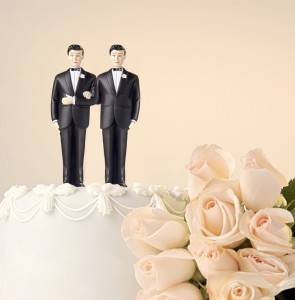
"...Same-sex marriage is built on a foundation of question-begging and caricature. It’s stunning how much the advocates of SSM beg the question of whether opposite-sex couples and same-sex couples are similarly situated with respect to marriage–their talk of “marriage equality,” in this sense, is simple-minded propaganda. It’s also impressive how they think they can ignore a nuanced understanding of the connection between marriage and procreation, preferring inaccurate and even ridiculous caricatures of this all-important connection.
To give an example, procreation is not the sine qua non of marriage, as the author of what Richard Posner has described as “the best book on same-sex marriage” calls it. If even the most sophisticated supporters of SSM are prone to such inaccuracies, what are we supposed to think? (Procreation is the raison d’être of marriage–a very different thing from sine qua non. Boiled down, this means the general fact of procreation is the reason for the existence of the institution of marriage–or that the marriage institution minus procreation as a general fact about that institution is meaningless, an empty shrine.)"
William Haun joins in:
"...The logical problem same-sex marriage advocates face at that juncture is that marriage is a legal institution, and government action requires at least a rational basis to proceed. So, rather than answer why society should have marriage laws if marriage is solely personal, they make empty arguments about “equality” and “civil rights.” This particular language is able to stifle serious responses out of fear of being branded a modern-day Bull Connor. But that is not argument, it is question-begging–the logical equivalent of an emperor without clothes. Our society will be able to point this out when marriage defenders explain why the law can make some distinctions among people so long as they’re rationally based (as racial distinctions were not), and why a rational basis so exists with marital unions. Re-educating society may not change values, but as John Adams observed, facts are stubborn things–and marriage should be explained as the result of the facts of life."
November 28, 2012 – 3:00 pm
Russell Snell, associate professor of philosophy and director of the philosophy program at Eastern University reviews the new book "What is Marriage? One Man One Woman: A Defense" and also focuses on the threat posed to freedom by those who would redefine marriage:
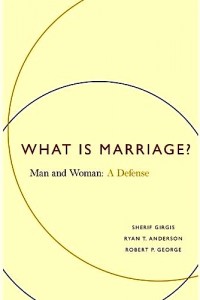 "...Freedom is also at risk. If the law withdrew its support of conjugal marriage, the state would “imply that the conjugal view makes arbitrary distinctions,” and supporters of conjugal marriage could not be viewed as anything other than unreasonable “champions of invidious discrimination,” with encroachment on conscience quite likely. Already defenders of the conjugal view are likened to racist supporters of antimiscegenation laws, and examples grow of their lost employment, eroding freedoms, and social stigmatization. Nor does the allegedly “conservative” claim that the revisionist view imposes marital norms on more relationships address that view’s arbitrariness or provide any reason why traditional marriage norms are binding once divorced from the conjugal view. The reality that they are not binding is supported with ample evidence of the high value placed on “openness” and “flexibility” among proponents of same-sex marriage."
"...Freedom is also at risk. If the law withdrew its support of conjugal marriage, the state would “imply that the conjugal view makes arbitrary distinctions,” and supporters of conjugal marriage could not be viewed as anything other than unreasonable “champions of invidious discrimination,” with encroachment on conscience quite likely. Already defenders of the conjugal view are likened to racist supporters of antimiscegenation laws, and examples grow of their lost employment, eroding freedoms, and social stigmatization. Nor does the allegedly “conservative” claim that the revisionist view imposes marital norms on more relationships address that view’s arbitrariness or provide any reason why traditional marriage norms are binding once divorced from the conjugal view. The reality that they are not binding is supported with ample evidence of the high value placed on “openness” and “flexibility” among proponents of same-sex marriage."
November 28, 2012 – 1:00 pm
William C. Duncan at NRO's The Corner:
 The journal Demography has just published a very interesting article that reexamines the claims of a 2010 study that suggested (and was widely reported) as showing that children raised by same-sex couples experienced no academic disadvantages. The catch of the earlier study was that it was significantly different from previous studies on same-sex children and their parents since it used a large sample from the Census rather than a small self-selected one which is more typical of this body of research.
The journal Demography has just published a very interesting article that reexamines the claims of a 2010 study that suggested (and was widely reported) as showing that children raised by same-sex couples experienced no academic disadvantages. The catch of the earlier study was that it was significantly different from previous studies on same-sex children and their parents since it used a large sample from the Census rather than a small self-selected one which is more typical of this body of research.
The 2010 study had excluded children who were not biologically related to the head of household and who were not in the same home for at least five years. This reduced “the sample size by more than one-half.” The 2012 study explains that putting the children who had been in unstable households (lived at the same address less than five years) back into the sample increases the sample “by more than 80 percent.” This fact alone seems important. The new study’s conclusion is that “children being raised by same-sex couples are 35 percent less likely to make normal progress through school.”
November 28, 2012 – 11:00 am
William Haun, a lawyer in DC, makes the limited government case against gay marriage:
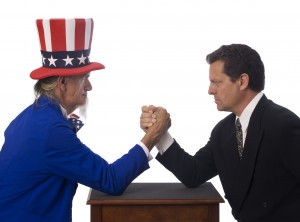 "...A society where marriage is divorced from its procreative purpose within a stable union is a society that neuters its ability to prevent predatory men from impregnating women and abandoning them and to ensure that men take responsibility for their offspring. And it denies the child an incontrovertible social benefit: a present mother and father.
"...A society where marriage is divorced from its procreative purpose within a stable union is a society that neuters its ability to prevent predatory men from impregnating women and abandoning them and to ensure that men take responsibility for their offspring. And it denies the child an incontrovertible social benefit: a present mother and father.
In such an alternative society—where marriage is divorced from procreation—the government steps in to look after children and relationships. And why not? If same-sex advocates view government validation of relationships as the means to achieve their social legitimacy, why not also look to government to solve the social failings of relationships?
Ultimately, the argument for same-sex marriage attempts to appeal to the personal promises we husbands and wives make to each other. But it only uses this course of reasoning because it cannot appeal to society’s reasons for establishing marriage laws in the first place. Yet when debating whether or not to license something, we cannot let our emotions determine the extent of government power. Government power that lacks a logical limiting principle—as the argument for same-sex marriage does—is inconsistent with limited government. To support limited government is to support traditional marriage." -- First Things
November 28, 2012 – 9:00 am
David Brooks in the New York Times asks if this is the bleak future we want to choose:
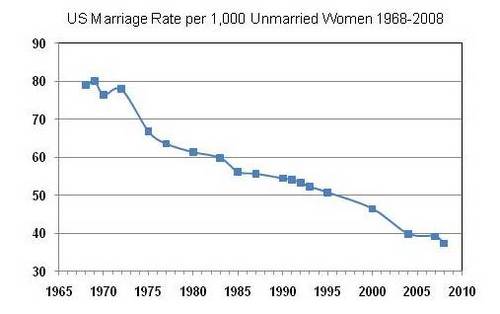 "...The number of Americans who are living alone has shot up from 9 percent in 1950 to 28 percent today. In 1990, 65 percent of Americans said that children are very important to a successful marriage. Now, only 41 percent of Americans say they believe that. There are now more American houses with dogs than with children.
"...The number of Americans who are living alone has shot up from 9 percent in 1950 to 28 percent today. In 1990, 65 percent of Americans said that children are very important to a successful marriage. Now, only 41 percent of Americans say they believe that. There are now more American houses with dogs than with children.
This is not a phenomenon particular to the United States. In Scandinavia, 40 percent to 45 percent of the people live alone. The number of marriages in Spain has declined from 270,000 in 1975 to 170,000 today, and the number of total Spanish births per year is now lower than it was in the 18th century.
Thirty percent of German women say they do not intend to have children. In a 2011 survey, a majority of Taiwanese women under 50 said they did not want children. Fertility rates in Brazil have dropped from 4.3 babies per woman 35 years ago to 1.9 babies today.
These are all stunningly fast cultural and demographic shifts. The world is moving in the same basic direction, from societies oriented around the two-parent family to cafeteria societies with many options.
This global phenomenon has been expertly analyzed in a report called “The Rise of Post-Familialism: Humanity’s Future?” written by a team of scholars including Joel Kotkin, Anuradha Shroff, Ali Modarres and Wendell Cox."
November 27, 2012 – 12:00 pm
The UK Daily Mail reports that UK prime minster David Cameron's risky gay marriage gamble is turning into a political disaster for him:
 The full extent of the revolt among Tory MPs over plans to allow gay marriage was revealed last night. In all, more than 100 Conservatives out of 303 have written to constituents indicating their unease. If they all vote against, it would be the biggest Tory rebellion in modern times.
The full extent of the revolt among Tory MPs over plans to allow gay marriage was revealed last night. In all, more than 100 Conservatives out of 303 have written to constituents indicating their unease. If they all vote against, it would be the biggest Tory rebellion in modern times.
Backbencher Douglas Carswell, one of those who will vote against, said: ‘I think you’ve got to have your head stuck in the Westminster bubble to think this is a priority.’
The vote could happen as early as January after Mr Cameron decided this week to ‘get it done and get it done quickly’.
They are an eclectic bunch – including a former breakfast TV presenter, a former top City investment manager, a Liverpool football fan and a gay friend of Margaret Thatcher.
But all have one thing in common: they are among the many Tory MPs who bitterly oppose David Cameron’s controversial policy to make gay marriage legal.
Altogether, there are at least 118 Tory MPs (out of a total of 303) who, the Mail can reveal, have condemned the proposal to redefine the centuries-old institution of marriage.
November 27, 2012 – 11:00 am
R. R. Reno, Editor of First Things:
Ken Mehlman is either deluded or disingenuous. The former chairman of the Republican National Committee is among those now trying to bring the Republican Party around to the cause of gay marriage. In today’s Wall Street Journal he made his case.
... Even more ridiculous is the notion that redefining marriage makes government less intrusive. The notion of civil rights that fuels the push for “marriage equality” requires pumping up the power of the state to bulldoze older traditions and attitudes that stand in the way of the full acceptance and affirmation of homosexuality. It’s going to lead to litigation, regulation, mandated school programs and “inclusivity” seminars, and lots of other legislation.
... Mehlman needs to either open his eyes or be honest: the gay rights movement can’t succeed unless and until the apparatus of the state is brought to bear on traditional institutions that don’t treat homosexuality and heterosexuality equally. It’s not just religious institutions. Basic cultural practices such as sex-segregated bathrooms and locker rooms will be revised—and always under pressure from the courts and government bureaucracies tasked to ensure LGBT rights.
This is in the nature of all progressive projects. The push toward redefining marriage involves creating a new possibility that would not otherwise come to pass if traditional institutions and attitudes were left alone. How will this change be effected. What will have sufficient power to overcome the always substantial solidity of the status quo? Government, of course. That’s why the progressive project is always essentially political.
... Case in point: by Mehlman’s way of thinking, the most basic institution of civil life, marriage itself, is a creation of the modern state to be redefined as the political will sees fit. If we can redefine marriage at such a fundamental level, then what is there in society other than individual choices and the power of the state?
November 27, 2012 – 9:00 am
Are gay and lesbian people politically powerless, i.e. a suspect class who deserve strict scrutiny under the law?
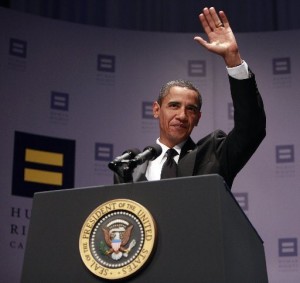 Chad Griffen, president of the $40million-per-year Human Rights Campaign, fresh from four state vote victories and the re-election of a pro-gay marriage president, claims the political power to demand more appointments of lesbian and gay people to the highest political offices in the land:
Chad Griffen, president of the $40million-per-year Human Rights Campaign, fresh from four state vote victories and the re-election of a pro-gay marriage president, claims the political power to demand more appointments of lesbian and gay people to the highest political offices in the land:
"...The Human Rights Campaign's Chad Griffin, president of the largest LGBT equality-rights advocacy group and political lobbying organization in the US, is calling for inclusion in the cabinet and other positions.
'We made historic progress with President Obama in terms of our openly LGBT appointments across the board,' Griffin tellsBuzzFeed. 'We now have the opportunity, and I hope this president and this White House will seize the opportunity to have the first openly LGBT Cabinet secretary, the first openly LGBT G-8 ambassador, and across the board with administrative appointments and judges as well." -- GayStarNews
"... U.S. District Chief Judge Robert Jones ruled that Nevada has what he calls "a legitimate state interest" in maintaining the traditional institution of marriage between one man and one woman.



 Tom Gilson of Breakpoint/The Colson Center
Tom Gilson of Breakpoint/The Colson Center 


 The journal Demography has just published a very interesting
The journal Demography has just published a very interesting  "...A society where marriage is divorced from its procreative purpose within a stable union is a society that neuters its ability to prevent predatory men from impregnating women and abandoning them and to ensure that men take responsibility for their offspring. And it denies the child an incontrovertible social benefit: a present mother and father.
"...A society where marriage is divorced from its procreative purpose within a stable union is a society that neuters its ability to prevent predatory men from impregnating women and abandoning them and to ensure that men take responsibility for their offspring. And it denies the child an incontrovertible social benefit: a present mother and father. "...The number of Americans who are living alone has shot up from 9 percent in 1950 to 28 percent today. In 1990, 65 percent of Americans said that children are very important to a successful marriage. Now, only 41 percent of Americans say they believe that. There are now more American houses with dogs than with children.
"...The number of Americans who are living alone has shot up from 9 percent in 1950 to 28 percent today. In 1990, 65 percent of Americans said that children are very important to a successful marriage. Now, only 41 percent of Americans say they believe that. There are now more American houses with dogs than with children.

